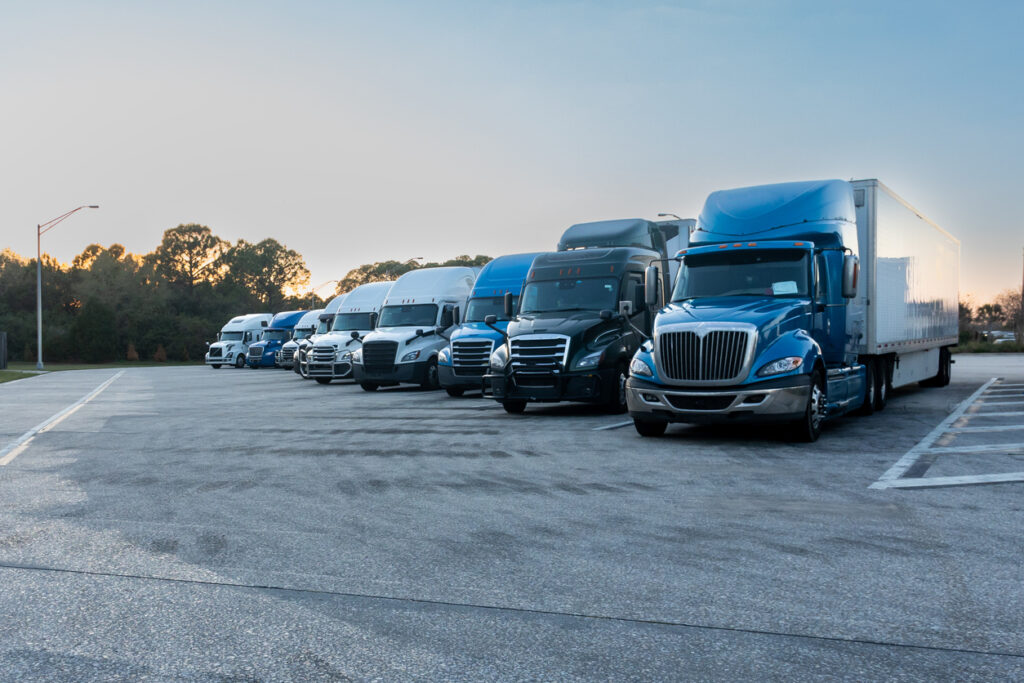
Being in charge of a fleet of any size can lead to challenges and unpredictable liabilities. Risks can come at you from every angle, whether on the road or parked in a lot.
Although you cannot control everything nor prevent dangers, you can take steps to mitigate potential liabilities with a risk management strategy.
This article explores the important factors fleet distributors need to consider to minimize potential liabilities.
What is Fleet Risk Management?
Fleet risk management is all about making sure you have healthy, safe drivers and well-maintained trucks. When these two come together to handle a job, you want to have the utmost confidence that your driver will take all precautions when driving and securing your truck — and that the truck is going to function properly to get from point A to point B and everywhere in between.
Identifying and addressing any issues early on can reduce the risk once the driver heads out on the road. The more you successfully manage your fleet, the more you reduce your risk. It will also keep your drivers safe, reduce any insurance claims or legal issues, help to maintain your image and save you money.
Components of a Risk Management Strategy
You need to focus on a few things when creating your risk management strategy, such as how well your trucks are maintained and how experienced your drivers are. This will have a huge impact on your level of risk. After all, sending poorly trained drivers out onto the road with poorly maintained trucks is a recipe for disaster.
Make the following a top priority of your fleet management:
- Compliance
- Truck maintenance
- Driver safety record and training
- Continued performance monitoring
- Addressing issues with trucks or drivers as they arise
How to Mitigate Potential Liabilities
So, how do you reduce your risks and keep your entire fleet operational? Here are a few ideas for a successful risk management strategy for fleet distributors.
Maintain Compliance
Whether your fleet runs locally or nationally, there are pieces of regulation that you cannot overlook. Rather, you want to make sure you comply with all of them. Not doing so or doing so erroneously could have serious consequences. Because it can be quite a headache, if you aren’t sure you are fully in compliance, seek help to reduce any potential risk.
Driver Experience and Training
When you hire a new driver, you are essentially putting the health of your fleet in the hands of that driver. Hiring drivers who are not experienced or who have a less-than-stellar driving record can be dangerous for your future.
Be strict with your hiring standards and with the adherence to safety standards within your company. You want to employ safe, well-trained drivers at all times — and nothing less. While anyone can get in an accident, those who are skilled at what they do are less likely to do so.
Truck Maintenance and Repairs
Of course, you can have a wonderful driver, but if your trucks are not well-maintained, a lot can go wrong on the road. Accidents, breakdowns, and issues with refrigeration can all lead to major headaches — and serious liability issues.
Make sure your fleet is regularly cared for and kept in proper shape at all times.
Properly Insure Your Trucks
Distributor insurance is vital for protection. It can provide coverage for drivers, trucks, the cargo, and property. And, it is one of the most significant ways to mitigate potential liabilities.
In the unlikely event that one of your drivers is involved in an accident, the insurance will protect your business from catastrophic losses. Coverage types and amounts may vary, but you can often use insurance to cover the cost of medical expenses, property damage, truck repairs, or replacements, as well as cover the cost of the cargo it was carrying if needed.
Commercial Truck Insurance with Daniel & Henry
At Daniel & Henry, we know commercial truck insurance — and we know how important it is for fleet distributors to protect their fleets. Contact us today for comprehensive, value-added insurance solutions.


